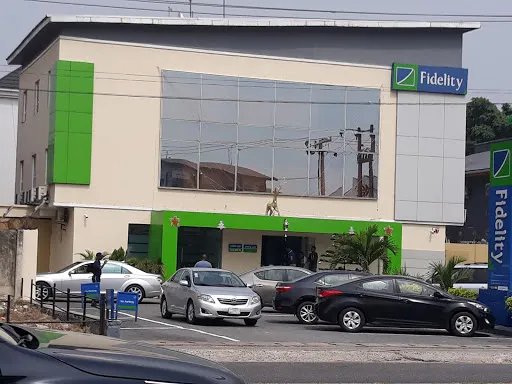When the management of the Nigerian Exchange Limited (NGX) in July 2023 announced that it was reclassifying Fidelity Bank Plc from small-price stock to medium-price stock, financial analysts concluded that the road to attaining Tier1 status by the bank is closer than ever imagined.
The NGX said the reclassification became necessary because Fidelity Bank shares have been trading above the N5.00 mark since February 2023.
According to the NGX, rule 15.29 of the Rulebook of the Exchange, 2015 (Dealing Members’ Rules) notes that equities priced above N5 per share for at least four of the most recent six months of trading, or new security listings priced above N5 per share at the time of listing on NGX are classified as medium price stock.
“Fidelity Bank traded above the N5.00 mark on February 20, 2023 and has remained above the N5 mark up until close of business on 30 June 2023. This indicates that Fidelity Bank has been trading above N5 for at least four months in the last six months. Therefore, it should be reclassified from small price stock to medium price stock,” it pointed out.
The bank has continued to post commendable financial performance every quarter as it cements its position amongst leading banks in the country. In the half-year 2023 results and for the second year running, the bank emerged as the company with the highest earnings per share on the Nigerian Exchange Limited (NGX).
Fidelity Bank, Seplat Energy, Total Energies, Okomu Oil, Presco, Dangote Cement, MTN Nigeria, BUA Foods, First City Monument Bank (FCMB) and Geregu Power emerged as the companies with the highest earnings per share within that review period.
Earnings per share (EPS) is a company’s net profit divided by the number of common shares it has outstanding. It also indicates how much money a company makes for each share of its stock and is a widely used metric for estimating corporate value.
A higher EPS indicates greater value because investors will pay more for a company’s shares if they think the company has higher profits relative to its share price. Fidelity Bank recorded an earnings per share of N184 in the first half of 2023 from N79 in the first half of 2022. The share price as of April 25, 2024, stood at N9.00 per share as the bank traded 12.642 million shares valued at N112.071 billion in 246 deals.
Fidelity Bank’s share price movement has shown intense volatility in an upward direction over the past years. The stock price has risen from N2.52 on January 04, 2010, to N10.00 on March 15, 2023, generating a YTD return of 297 per cent. Market capitalization as of April 25, 2024, stood at N288.11 billion. Average volume stood at 11.76 million, share outstanding was 32.01 billion while free float was 31.72 billion
Analysts believe the bank’s share price underlines its earnings growth and financial performance as higher dividend yields and future earnings forecasts have triggered demand in the money lender’s shares. Over the last 10 years, the bank’s share price has risen to a resistance (highest price) of N14.20 on March 05, 2024, and a support price (lowest price) of N0.76 on November 16, 2016.
“Fidelity Bank demonstrates the classical admonition to prospective investors of entering low and selling high. Over the last eight years, Fidelity’s stock price has risen by 44.19 per cent on a compound annual basis; very few stocks could prove a better inflation hedge,” according to a Lagos-based stockbroker.
Ambrose Omordion, Chief Research Officer at Investdata Consulting Limited, believes that this is the best time for Fidelity as the bank’s share price is doing well among its peers.
He said, “Fidelity is doing well and its share price is one of the best among its peers. This is so because the bank has recorded impressive results in its 2023 financial year. In June 2023, the bank shares rose by 32 per cent making it the nation’s best-performing bank share as of half year (June 30).
“I can only see a better bank now and in the future. The bank is a potential Tier 1 bank and the performance of the bank is a pointer to the fact that the bank will scale the recapitalisation hurdle of the Central Bank of Nigeria (CBN).”
Prince Anthony Omojola, National Coordinator, Independent Shareholders Association of Nigeria (ISAN), asserted: “Fidelity Bank is moving up in terms of performance. They have joined those paying interim dividends and they have also dipped their hand into big money tills for huge investment.
“They have borrowed big to be able to handle bigger contracts and be able to reap big. The reclassification is welcomed and I hope they will not disappoint us. If they can meet expectations, the benefit will be for Nigeria”.
Sam Ndata, Doyen of Nigerian Stockbrokers and non-executive director at UIDC Securities Limited, commented: “This is a good development. If a company performs well, it will surely be rewarded to earn investors’ confidence”.
Boniface Okezie, National Coordinator, Progressive Shareholders Association of Nigeria, said: “Fidelity Bank has paid its dues in the financial services sector. It has contributed immensely to the development of the small and medium enterprises (SME) sector yet pays dividends to the shareholders.
“Last year, it took the market by surprise by declaring a dividend of 50k per share which had not happened in previous years. The massive investment in ICT and effective branch network shows it is ready to serve the customers in a better way and make the shareholders happy”.
Continuing Growth with Excellent FY 2023 Performance
In a move that has been regarded as a demonstration of the bank’s increasing profile and the bountiful harvest awaiting shareholders in the future, the bank has proposed a final dividend of 60 kobo per share on the back of its laudable full year 2023 performance.
Analysis of the recently issued results shows that the bank recorded double-digit growth across key income and balance-sheet lines which led to a Profit After Tax of N99.45 billion, representing a 112.9% annual growth.
Underpinning the commendable growth in profits is an 81.6% growth in Net interest income to N277.4bn, driven by a 55.5% increase in interest income, which reflect a steady rise in asset yield throughout the year. The average funding cost dropped by 20bps to 4.4% due to increased low-cost funds that grew from 83.6% in 2022FY to 97.4% in 2023.
The combination of higher asset yield and lower funding cost led to an increase in Net Interest Margin (NIM) of 8.1% from 6.3% in 2022FY. Similarly, Total Customer Deposits crossed the N4tn mark as deposits grew by 55.6% from N2.6tn in 2022FY. The increase was driven by 81.1% growth in low-cost funds.
All these have led the bank’s board to propose the 60 kobo per share final dividend payout which would make shareholders enjoy a total dividend of 85 kobo per share for the reporting period, a 70.0% increase compared to the 50 kobo per share paid to its shareholders in the previous year. This makes it the eighth consecutive year the bank would pay dividends.
These developments have also excited analysts who have dubbed the bank one to watch in the financial year. As banks go into a round of capital raise, Fidelity Bank is definitely one to watch by investors as their solid performance has been consistent over the years.
The efficacy of their management strategy was affirmed in October 2023 when they became the first financial institution to announce their decision to raise capital in the market, long before the regulators announced their decision to raise the capital requirements for banks. For now, the bank under the leadership of Dr Nneka Onyeali-Ikpe has consistently made the right decision, earning them the enviable position of one to watch.





















